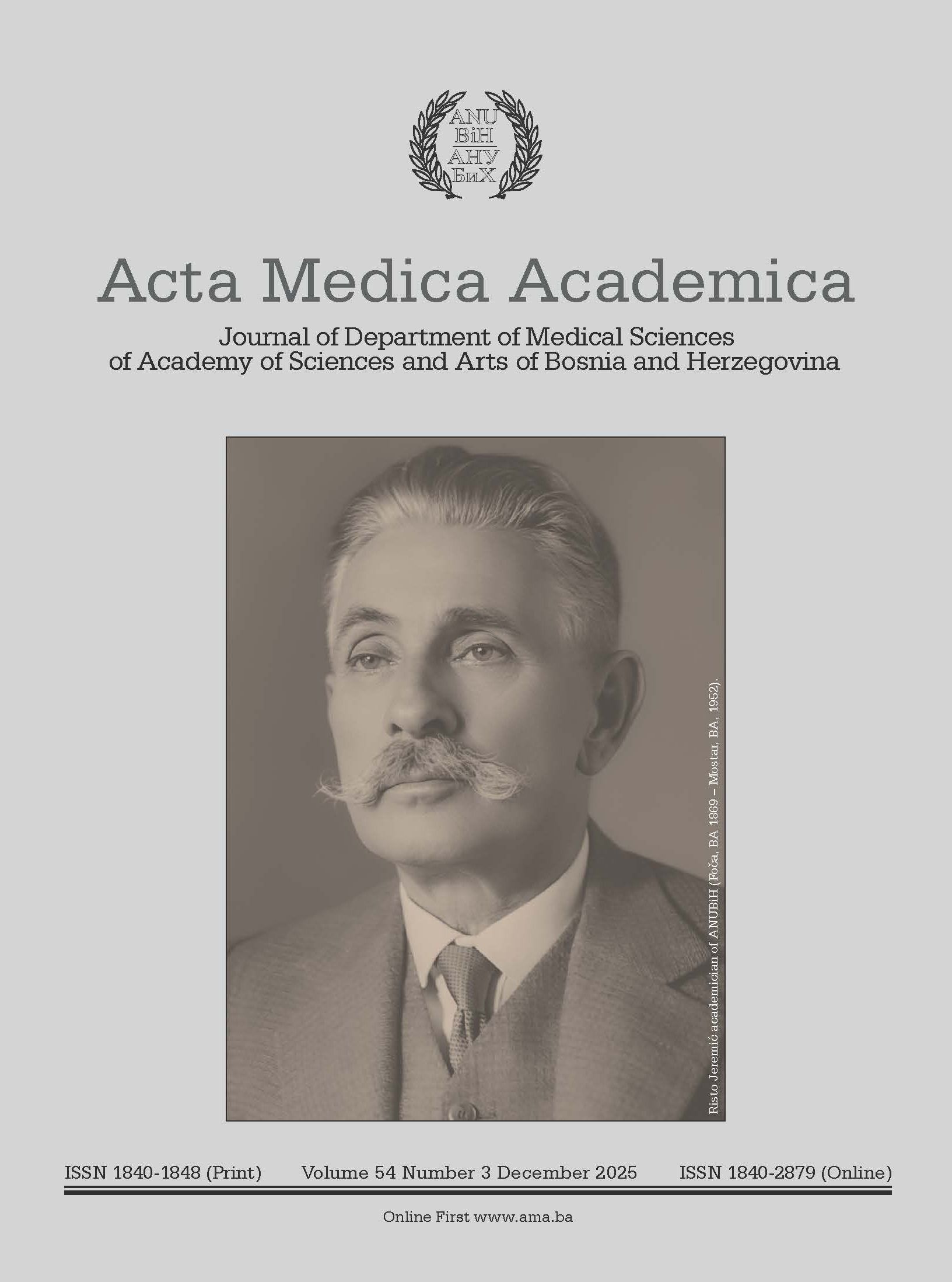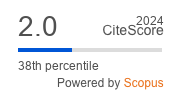Genetics of IgA Vasculitis: What We Know and Where We Are Going
DOI:
https://doi.org/10.5644/ama2006-124.478Keywords:
IgA Vasculitis, Genetics, Human Leukocyte AntigenAbstract
Immunoglobulin A (IgA) vasculitis (IgAV) is the most prevalent systemic vasculitis in children. Although the condition is typically self-limiting with spontaneous recovery within a few weeks, both acute and long-term complications can arise, with renal involvement being the most significant. In recent years, considerable attention has been directed toward unraveling the genetic basis of IgAV. Studies have identified associations between disease susceptibility and specific human leukocyte antigen (HLA) polymorphisms. In addition, variants in genes encoding cytokines, chemokines, and other biologically important proteins – particularly those involved in the abnormal glycosylation of IgA1 – have been linked to both increased risk of developing IgAV and more severe disease manifestations. Notably, polymorphisms in the interleukin-1 receptor antagonist (IL1RN) and IL8 genes have been correlated with an increased risk of glomerular injury. Other gene polymorphisms have also been associated with specific clinical phenotypes, such as HMGB1 and RAGE, whereas polymorphisms in genes involved in mucosal immune defense have not demonstrated any significant correlations to date. Ongoing research is essential to clarify these findings further and determine their implications for clinical practice.
References
Ozen S, Pistorio A, Iusan SM, Bakkaloglu A, Herlin T, Brik R, et al. EULAR/PRINTO/PRES criteria for Henoch-Schönlein purpura, childhood polyarteritis nodosa, child- hood Wegener granulomatosis and childhood Takayasu arteritis: Ankara 2008. Part II: Final classification crite- ria. Ann Rheum Dis. 2010;69(5):798-806. doi: 10.1136/ ard.2009.116657.
Davin JC, Coppo R. Henoch-Schönlein purpura nephri- tis in children. Nat Rev Nephrol. 2014;10(10):563-73. doi: 10.1038/nrneph.2014.126. Epub 2014 Jul 29.
López-Mejías R, Carmona FD, Castañeda S, Genre F, Re- muzgo-Martínez S, Sevilla-Perez B, et al. A genome-wide association study suggests the HLA Class II region as the major susceptibility locus for IgA vasculitis. Sci Rep. 2017;7(1):5088. doi: 10.1038/s41598-017-03915-2.
Koskela M, Nihtilä J, Ylinen E, Kolho KL, Nuutinen M, Ritari J, et al. HLA-DQ and HLA-DRB1 alleles associated with Henoch-Schönlein purpura nephritis in Finnish pediatric population: a genome-wide association study. Pediatr Nephrol. 2021;36(8):2311-8. doi: 10.1007/s00467- 021-04955-7. Epub 2021 Feb 16.
López-Mejías R, Castañeda S, Genre F, Remuzgo-Mar- tínez S, Carmona FD, Llorca J, et al. Genetics of immunoglobulin-A vasculitis (Henoch-Schönlein purpura): An updated review. Autoimmun Rev. 2018;17(3):301-15. doi: 10.1016/j.autrev.2017.11.024. Epub 2018 Jan 17.
Amoli MM, Thomson W, Hajeer AH, Calviño MC, Gar- cia-Porrua C, Ollier WE, et al. Interleukin 1 receptor antagonist gene polymorphism is associated with severe re- nal involvement and renal sequelae in Henoch-Schönlein purpura. J Rheumatol. 2002;29(7):1404-7.
Amoli MM, Thomson W, Hajeer AH, Calviño MC, Garcia-Porrua C, Ollier WE, et al. Interleukin 8 gene polymorphism is associated with increased risk of nephritis in cutaneous vasculitis. J Rheumatol. 2002;29(11):2367-70.
López-Mejías R, Sevilla Pérez B, Genre F, Castañeda S, Ortego-Centeno N, Miranda-Filloy JA, et al. Lack of as- sociation between IL6 gene and Henoch-Schönlein pur- pura. Clin Exp Rheumatol. 2014;32(3 Suppl 82):S141-2. Epub 2014 Feb 11.
López-Mejías R, Genre F, Remuzgo-Martínez S, Pérez BS, Castañeda S, Llorca J, et al. Role of PTPN22 and CSK gene polymorphisms as predictors of susceptibility and clinical heterogeneity in patients with Henoch-Schönlein purpu- ra (IgA vasculitis). Arthritis Res Ther. 2015;17:286. doi: 10.1186/s13075-015-0796-x.
estan, M. Contribution of the whole exome sequencing in the identification of genetic variants associated with childhood-onset systemic lupus and IgA vasculitis [dissertation]. Zagreb: University of Zagreb, School of Medicine; 2022.
Batista-Liz JC, Calvo-Río V, Sebastián Mora-Gil M, Se- villa-Pérez B, Márquez A, Leonardo MT, Peñalba A, et al. Mucosal Immune Defence Gene Polymorphisms as Relevant Players in the Pathogenesis of IgA Vasculitis? Int J Mol Sci. 2023;24(17):13063. doi: 10.3390/ijms241713063.
Yildirim S, Karakaya Z, Ozcay O, Erguven M. MEFV Gene Mutation Analysis in Children with Immunoglobulin A Vasculitis and Its Effects on Clinical Manifestations: A Big Series from a Tertiary Center. Med Bull Haseki. 2024;62(2):82-91. doi:10.4274/haseki.galenos.2024.9578.
Sasajima T, Fujita Y, Ejiri Y, Suzuki T, Wada J, Yokose K, et al. Immunoglobulin A Vasculitis in a Japanese Patient with Complete Familial Mediterranean Fever Carrying MEFV Exon 10 Mutation. Tohoku J Exp Med. 2021;255(2):157- 62. doi: 10.1620/tjem.255.157.
Batnozic Varga M, Held M, Wagner J, Arvaj N, Sestan M, Sapina M, et al. The Association of HMGB1 and RAGE Gene Polymorphisms with IgA Vasculitis. Biochem Genet. 2024;62(3):2268-78. doi: 10.1007/s10528-023-10536-0. Epub 2023 Oct 30.
Downloads
Published
License
Copyright (c) 2025 Jelena Roganović, Ante Vidović

This work is licensed under a Creative Commons Attribution 4.0 International License.





